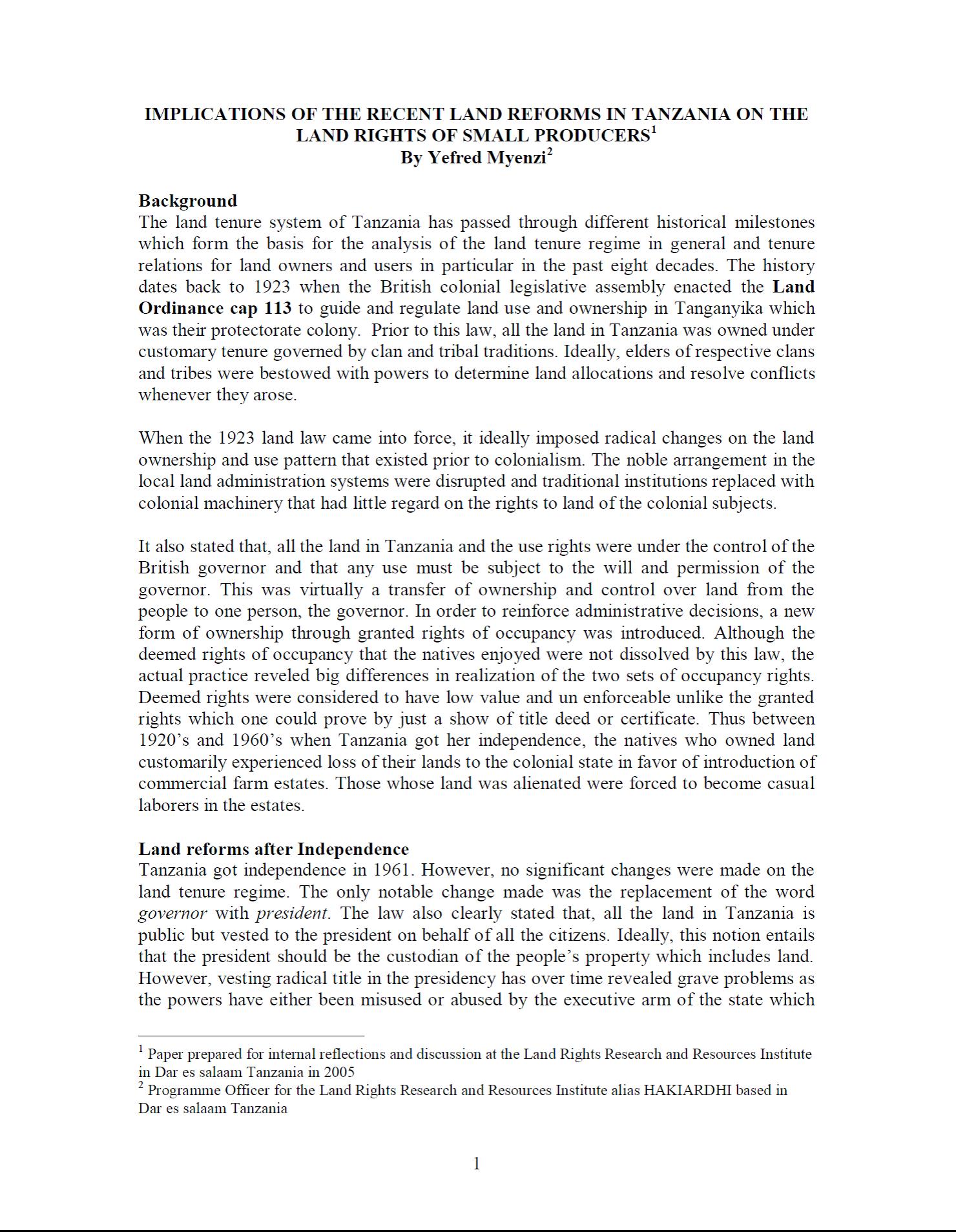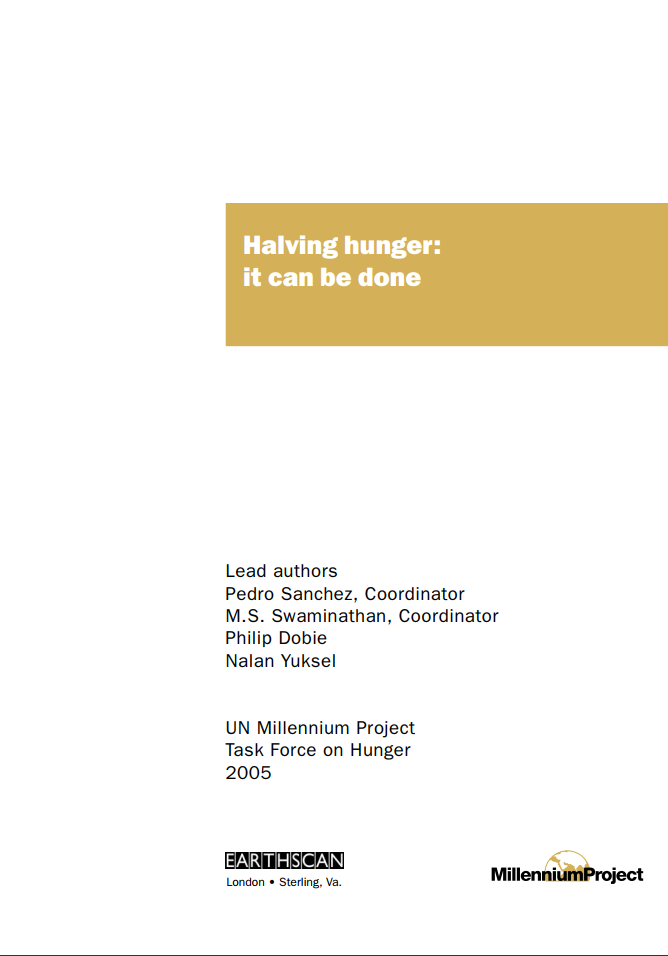Multifunctionality of Agriculture: An Inquiry Into the Complementarity Between Landscape Preservation and Food Security
Without support, the levels of agricultural public goods will fall short of the demand in high cost countries like Norway, Finland and Iceland. However, as demonstrated in this paper using Norway as a case, the current support and agricultural activity is far out of proportions from a public goods perspective. Model simulations show that at most 40% of the current support level can be defended by the public good argument. Furthermore, the present support, stimulating high production levels, is badly targeted at the public goods in question.
Deserted Fields: The destruction of agriculture in Mong Nai Township, Shan State
Summary:
"Wrong-headed agricultural and development policies, counter-insurgency activities, as well
as corruption and cronyism by the Burmese military regime, have all caused a dramatic
decrease in rice production and food security in southern Shan State over the past ten years.
The township of Mong Nai provides a good example of how food security, commonly defined
as the physical and economic access to sufficient, safe and nutritious food at all times, has
Labor Contracts, Incentives, and Food Security in Rural Myanmar
Abstract:
Policy analysis for sustainable land management and food security in Ethiopia
Policy Analysis for Sustainable Land Management and Food Security in Ethiopia presents a bioeconomic model of this less- favored area in the Ethiopian highlands. The main reason for selecting this case study area is the unique availability of both biophysical and socioeconomic data covering a period of 15 to 20 years.The data provides a valuable opportunity to analyze the relationships between population pressure, poverty, and land degradation and to test policies for reducing vulnerability and improving sustainable management of the resource base....
Innovatie-experimenten in de open teelten
In de Systeeminnovatieprogramma’s voor de geïntegreerde en biologische open teelten zijn drie innovatieprojecten van start gegaan: De smaak van morgen, Nutriënten waterproof en Topsoil+. Elk project pakt een knelpunt op om de teelten duurzamer te maken en voor te bereiden op de geschetste toekomst van de open teelten in 2030. De toekomstbeelden schetsen een toekomst van agrarische functies die in diverse ringen rondom stedelijke kernen zijn gegroepeerd: dichtbij de stad kleinschalige verweven belevingslandbouw tot verder weg van de stad grootschalige productielandbouw
Implications of the Recent Land Reforms in Tanzania on the Land Rights of Small Producers
The land tenure system of Tanzania has passed through different historical milestones which form the basis for the analysis of the land tenure regime in general and tenure relations for land owners and users in particular in the past eight decades. The history dates back to 1923 when the British colonial legislative assembly enacted the Land Ordinance cap 113 to guide and regulate land use and ownership in Tanganyika which was their protectorate colony. Prior to this law, all the land in Tanzania was owned under customary tenure governed by clan and tribal traditions.
Halving hunger: it can be done
Halving Hunger examines current world progress towards eliminating hunger, and calls for the implementation of seven recommendations in the areas of: political action, national policy reforms, increased agricultural productivity for food insecure farmers, improved nutrition for the chronically hungry, productive safety nets for the acutely hungry, improved rural incomes and markets, and restoration and conservation of natural resources essential for food security.
The Hindu Succession (Amendment) Act, 2005
This Hindu Succession Act Amendment made in 2005 was to grant, among others, rights to women to inherit agricultural land of the parents and husband. Under this amendment the daughters, including married daughters, are coparceners in joint family property, with the same birth right as sons, to share, claim partition, and (by presumption) to become karta (managers), while also sharing the liabilities. This would be applicable for Hindus, Sikhs, Buddhists and Jains religious communities of India.
Strategies for Sustainable Land Reform in the Karoo Hoogland
This report examines the ways in which a local municipality can assist small holder farmers in a semiarid region. It highlights the range of smallholder producers and proposes different strategies for their effective support.
Report on the proceedings of the National Conference on Women’s Land and Property Rights and Livelihood in Namibia, with a Special Focus on HIV/AIDS
Report divided into 5 themes: legal issuers of women’s rights to land and property in Namibia; traditional institutions on women’s land and property rights; HIV/AIDS, land and property rights, and livelihood strategies; Namibian experiences; regional experiences (Swaziland, Uganda, Zambia, Zimbabwe).
Land Reform in Angola: Establishing the Ground Rules
Includes regional context, history of land tenure in Angola, the 1992 land law and its implementation, the draft Land Act of 2002 and its approval, review of post conflict potential fracture points – resettlement of IDPs and refugees, land grabbing, peri-urban land, food security and revival of agriculture, and prerequisites for a new policy.








